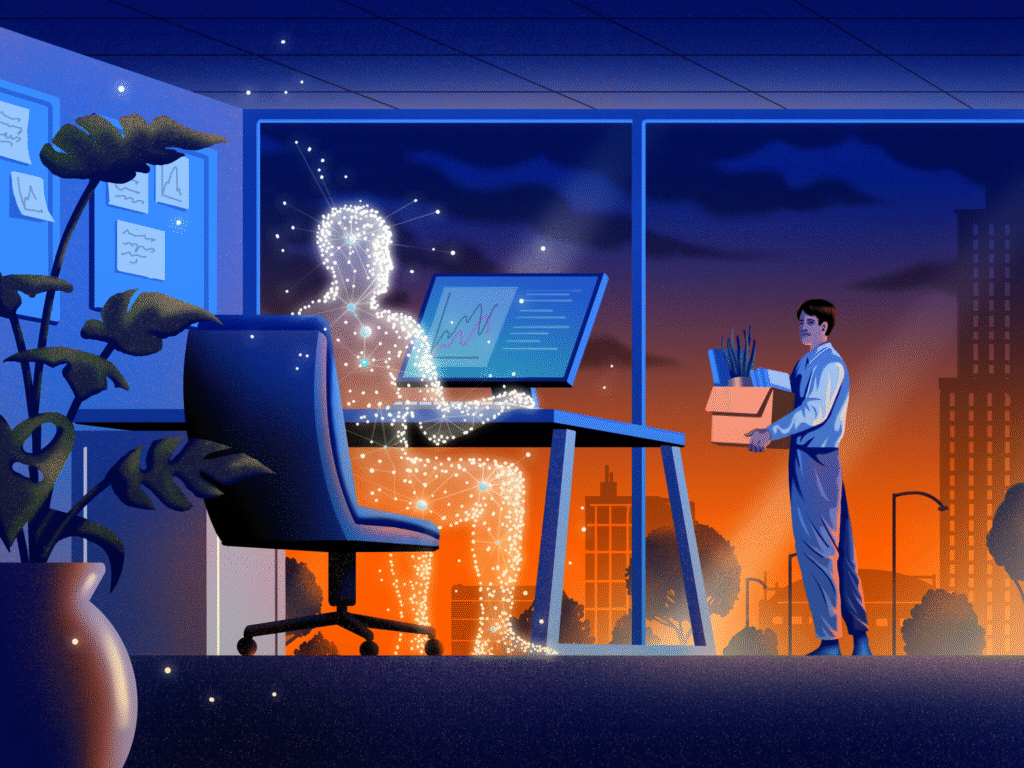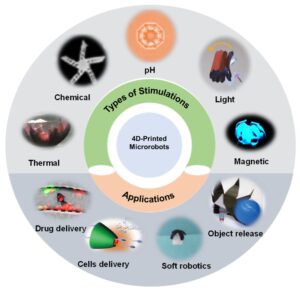In early 2023, most people were just getting used to ChatGPT. Fast-forward to 2025, and the conversation has shifted to something far more advanced—AI agents.
Unlike standard AI tools that respond to prompts, Autonomous AI agents can act independently, make decisions, perform tasks across multiple applications, and even interact with other agents. They don’t just assist; they execute. And that shift is starting to reshape industries, automate complex workflows, and open new doors in everything from healthcare to personal productivity.
So, what exactly are AI agents, why is everyone in tech talking about them, and how might they impact your daily life or business? Let’s break it down.
What Are AI Agents, Really?
AI agents are autonomous software programs that use artificial intelligence to perform tasks without needing constant human input. Think of them like highly capable digital employees.
- Access tools and APIs
- Take multiple steps to achieve a goal
- Make decisions based on context
- Coordinate with other systems (or agents)
- Learn and improve over time
For example, instead of you scheduling a meeting, an AI agent could check your calendar, reach out to others, compare availability, book a meeting room, send invites, and follow up—all without you lifting a finger.
Real-World Use Cases of AI Agents in 2025
Healthcare: From Admin Tasks to Patient Follow-ups
AI agents are helping reduce the administrative burden on doctors and nurses. Some hospitals are already using agents that:
- Transcribe and summarize doctor-patient conversations
- Schedule follow-up appointments
- Alert physicians to medication conflicts
- Track patient recovery data
In rural areas of India and Africa, AI agents powered by open-source models are even helping with early diagnosis of diseases like tuberculosis and malaria using mobile health records.
Finance: Automating Compliance and Customer Support
Financial institutions are turning to AI agents to handle repetitive and error-prone tasks like:
- KYC (Know Your Customer) document verification
- Real-time fraud detection
- Automated auditing and report generation
- 24/7 multilingual customer support
Companies like Klarna and HSBC are deploying agents that learn from past interactions to improve accuracy and reduce false positives.
E-commerce and Marketing
In online retail and digital marketing, AI agents are taking personalization to the next level. They can:
- Monitor user behavior in real time
- Adjust pricing or promotions dynamically
- Recommend tailored product bundles
- Write and A/B test product descriptions
Shopify now includes store assistants that handle customer queries, returns, and order updates without human agents.
Personal Productivity
Imagine telling your AI agent: “Plan a two-week Europe trip under $2,000 with cultural events in at least three cities.” It will:
- Search and book flights and hotels
- Generate an itinerary with local events
- Handle bookings and document organization
- Set reminders for travel dates
Why AI Agents Are a Step Beyond Chatbots
Most people are familiar with chatbots—they answer questions and follow simple commands. AI agents are vastly different.
| Feature | Chatbot | AI Agent |
|---|---|---|
| Acts across apps | ❌ | ✅ |
| Multi-step reasoning | ❌ | ✅ |
| Learns from experience | Limited | ✅ |
| Goal-oriented | Sometimes | ✅ |
| Needs prompt every time | ✅ | ❌ |
In short, AI agents are proactive, not just reactive—and that changes everything.
Who’s Leading the Charge?
- OpenAI’s AutoGPT & AgentGPT – autonomous frameworks
- Microsoft Copilot Agents – built into Windows & Office
- Google Gemini Agents – integrated with Workspace and Android
- Meta AI Personas – creative and support agents
- Open-source tools like LangChain and CrewAI
Risks & Ethical Concerns
Powerful tools carry powerful risks. Some of the top concerns with AI agents include:
- Security threats from agents accessing sensitive data
- Decision errors in critical applications
- Job displacement in white-collar roles
- Bias and fairness issues from flawed training data
Responsible development and clear oversight will be key to safe, ethical adoption.
The Future of Work with AI Agents
AI agents won\’t replace all workers—but they\’ll certainly change how we work. Here’s what experts predict:
- Employees will become orchestrators, not executors
- Small teams will handle bigger projects using agents
- Freelancers will scale up productivity with minimal effort
- New roles will emerge in agent training and governance
Conclusion
AI agents mark a transformative step in how we interact with technology. With their ability to think, act, and adapt autonomously, they’re not just futuristic—they’re here, now, changing workflows, industries, and lives.
Staying informed and adapting to these tools will be key to remaining competitive in the digital age. The age of intelligent, proactive AI has begun.
Sources & Further Reading
- OpenAI Blog
- Microsoft Copilot AI
- LangChain Documentation
- Wired (2025): “Inside the AI Agents Taking Over Your Workflow”




